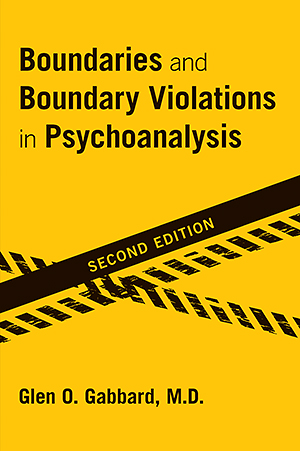Sections
Excerpt
A boundary is usually a geographic term that precisely defines a border of a city, country, or other entity. The terms limit and boundary are interchangeable in the physicalistic sense, indicating an extent beyond which an activity or function cannot or should not take place. Within the discipline of psychoanalysis the term boundaries has a long history and has been used to denote the demarcation between self and object components in the intrapsychic world, the boundary between the biological and psychological, a dimension of the ego, and a component of psychoanalytic process. In this book I will emphasize the concept of boundaries in terms of the interpersonal dimension of the analytic setting. The interpersonal, however, is inextricably linked to the intrapsychic, and I will illustrate how internal boundaries may have significant influences on external boundaries.
Access content
To read the fulltext, please use one of the options below to sign in or purchase access.- Personal login
- Institutional Login
- Sign in via OpenAthens
- Register for access
-
Please login/register if you wish to pair your device and check access availability.
Not a subscriber?
PsychiatryOnline subscription options offer access to the DSM-5 library, books, journals, CME, and patient resources. This all-in-one virtual library provides psychiatrists and mental health professionals with key resources for diagnosis, treatment, research, and professional development.
Need more help? PsychiatryOnline Customer Service may be reached by emailing [email protected] or by calling 800-368-5777 (in the U.S.) or 703-907-7322 (outside the U.S.).



